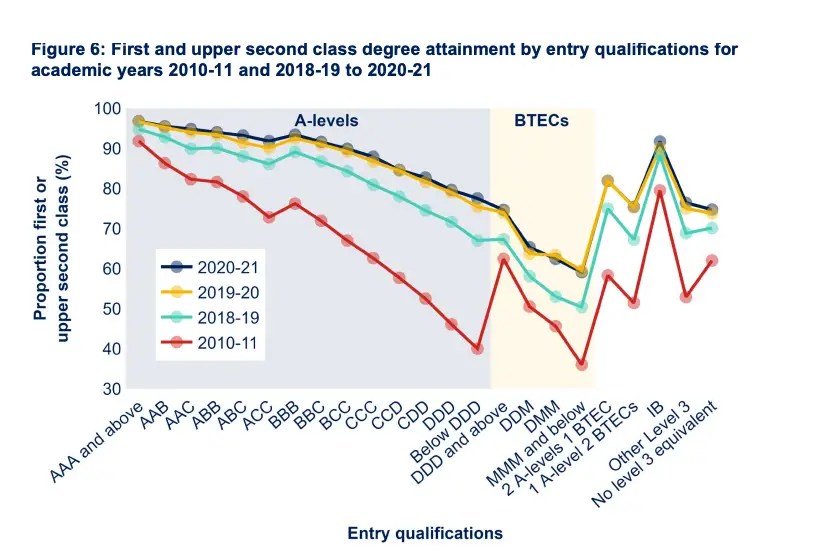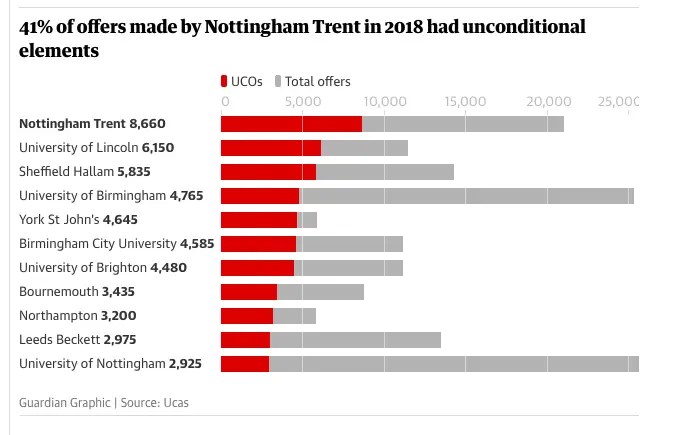A recent investigation conducted by the Sunday Times found that international students were being offered places at British University with much lower grades than British students.
However, on reading the article beneath the headline we quickly discover that the international students were being recruited onto one year foundation courses while the British students were being recruited onto regular degree courses.
There is still a wide held belief that international students are taking places away from British students. It is widely thought that universities are motivated by money. They charge foreign students double or more for the same courses, and this is detrimental to British students.
However, if we examine the data closer it appears that the opposite may be true!

In 2012 the maximum fees per year universities could charge for a course was set at £9000. Today it is still only £9250.
Fees simply haven’t risen in line with inflation. Everything is more expensive today, especially the wages for lecturers.
In real terms fees have slumped to only £7000 a year. This isn’t enough to pay for the cost of running universities and courses.
Today universities lose money for every British student they recruit.
However, fees for foreign students are not capped, and so universities make a profit on these. These profits subsidise places for British students. International fees make up 10-30% of many universities’ income. Hence capping the numbers of foreign students would probably be detrimental to them.
British students are not being squeezed out…
If you compare the figures from 2019 with 2023 the numbers of UK students at British universities has increased by just under 20 000, an increase of just under 5%.
Over the same period the number of acceptances of foreign students has increased by 15000, an increase of just under 35%.
However the above figures do not include students from the EU, who are counted in a different category. There were 30 000 EU students in 2019, but only 10 000 in 2023.
Thus, if we add together the figures for ‘International’ students and ‘EU’ students we find there are fewer students in 2023 than in 2019.
The main reason for the decline of EU students is Brexit. EU students used to be treated the same as British students with the same fees, but now they have to pay the international rate.
Relevance to A-level sociology
This is relevant to the sociology of education, especially the topic on globalisation and education.
It would seem that if you look at the data in some depth foreign students are effectively subsidising UK students. University fees in the UK have been kept low by the government and don’t cover the costs of education. Hence universities need more foreign students who pay higher fees to cover the costs!
Sources
This is a summary of a recent More or Less podcast










 The statistics above show that…
The statistics above show that…
 As you can see, female economics graduates earn 150% more than non graduates, with medicine not far behind and most of the rest of the STEM subject graduates earning 100% more.
As you can see, female economics graduates earn 150% more than non graduates, with medicine not far behind and most of the rest of the STEM subject graduates earning 100% more. 

